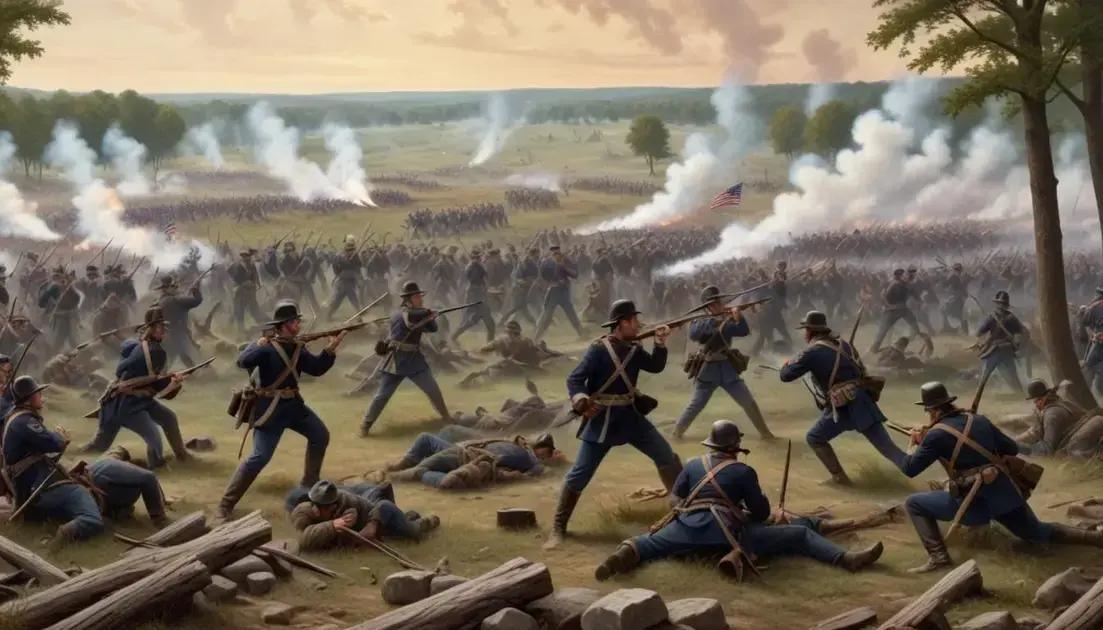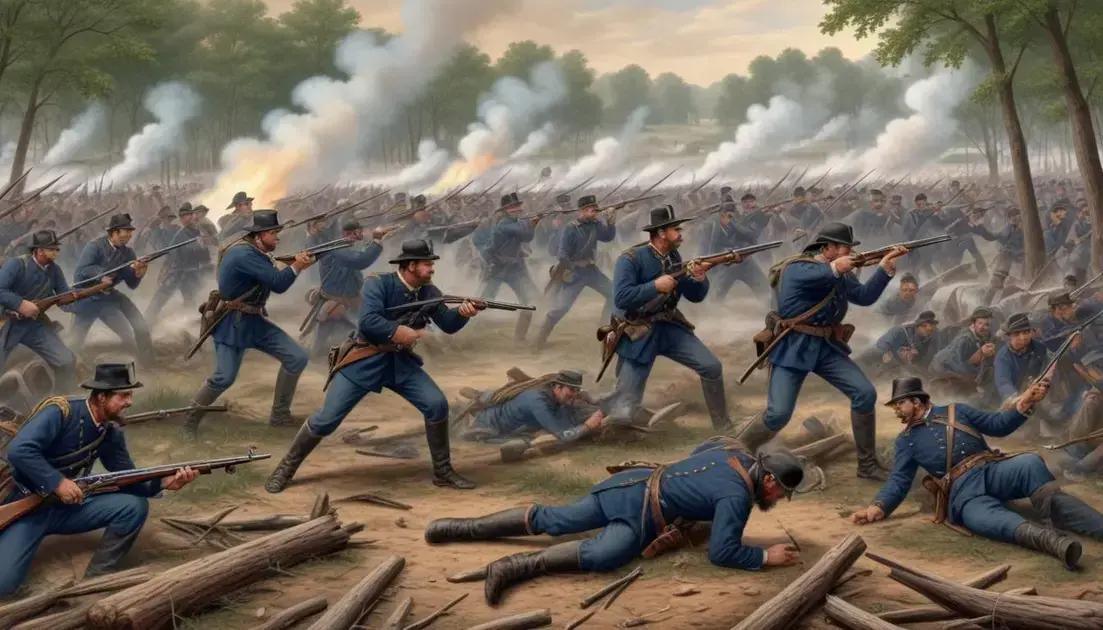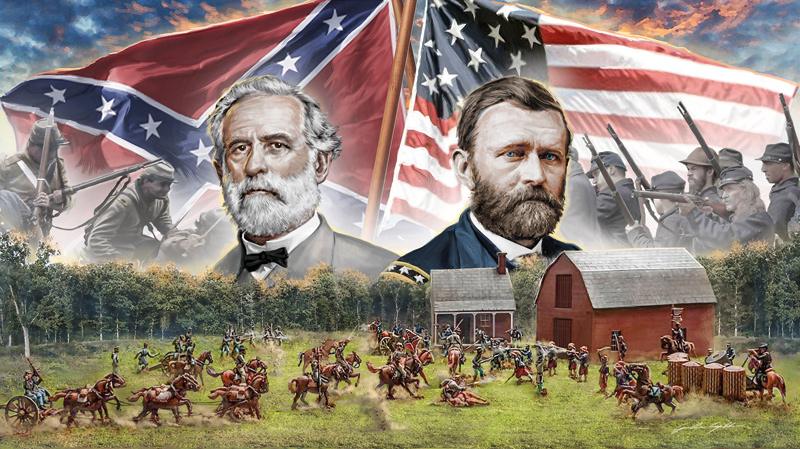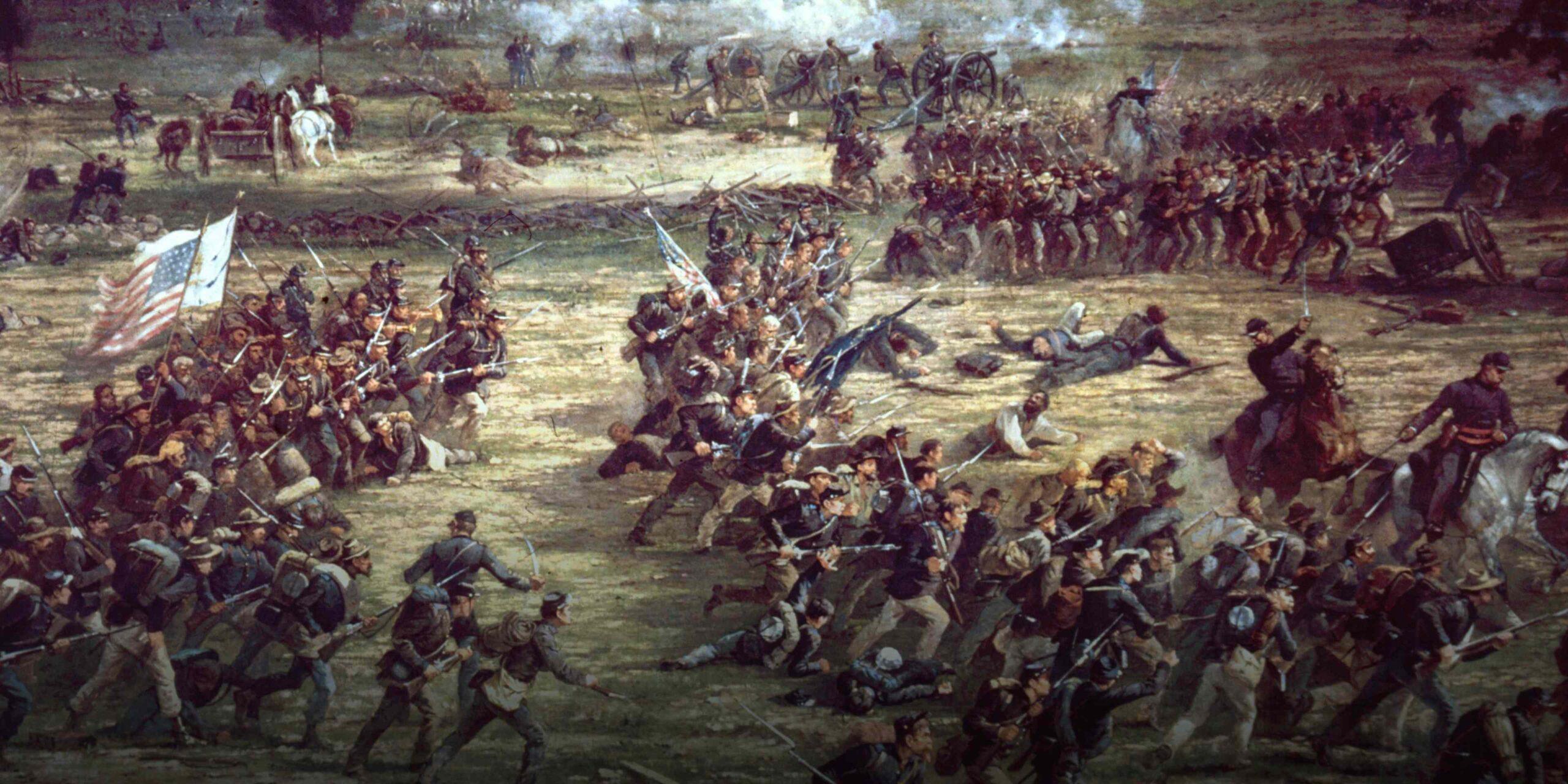
Battle of Gettysburg: The Turning Point of the American Civil War
The Battle of Gettysburg, fought from July 1 to 3, 1863, was a crucial conflict in the American Civil War. This battle marked a turning point, as the Union victory under General George Meade led to significant losses for the Confederacy and boosted Northern morale. Key strategies employed during the battle included the Union’s defense of high ground and the failed Pickett’s Charge by Confederate General Robert E. Lee. President Abraham Lincoln’s Gettysburg Address further emphasized the battle’s significance by reaffirming the principles of equality and unity, making it a pivotal moment in U.S. history.
Gettysburg represents a pivotal moment in American history, where bravery met strategy in one of the most treacherous engagements of the Civil War.
Overview of Gettysburg
The Battle of Gettysburg took place from July 1 to July 3, 1863. It was a turning point in the American Civil War. This battle is known as the bloodiest conflict in the war, with about 51,000 soldiers wounded or killed.
Located in Pennsylvania, Gettysburg saw fierce fighting between Union and Confederate forces. The Union army, led by General George Meade, clashed with Confederate General Robert E. Lee’s forces. The strategic positions on the battlefield were crucial.
On the first day, the Confederates pushed back Union troops through the streets of Gettysburg. By the second day, both sides fought for control of key locations like Little Round Top and Cemetery Hill. These areas were vital for defending their positions.
On the last day, Pickett’s Charge became a famous moment of the battle. Confederate troops advanced across open fields toward the Union lines. Unfortunately, they faced heavy casualties and could not break through.
The victory for the Union was significant. It marked the beginning of the end for the Confederacy. After this battle, Confederate forces would be on the defensive.
Impact on the Civil War
The outcome of Gettysburg shifted the tide of the war. It boosted the morale of the Union army and proved that the Confederacy could be defeated. This victory also led to President Lincoln’s famous Gettysburg Address.
Lincoln’s speech honored the fallen soldiers and reaffirmed the purpose of the war: to ensure a nation of freedom and equality. Gettysburg is now remembered as a symbol of sacrifice and commitment to a better future.
Key Strategies and Leaders
The Battle of Gettysburg featured key strategies from both the Union and Confederate leaders. Understanding these strategies helps us see why the battle was so important.
General George Meade led the Union army. He organized his troops to defend strong positions. Meade used the high ground to protect his forces. This made it hard for the Confederates to advance.
On the other side was General Robert E. Lee. He was known for his bold tactics. Lee wanted to attack quickly and take the initiative. His strategy involved flanking the enemy and surprising them.
During the first day, the Confederates gained ground. They pushed the Union soldiers back through town. But Meade quickly regrouped and set up defenses on higher ground.
On the second day, fierce fighting took place at places like Little Round Top and Cemetery Hill. Union troops held their ground despite fierce attacks. Their strong defense played a key role in turning the tide.
On the final day, Lee ordered Pickett’s Charge. This was a direct attack on Union lines, aiming to break their defenses. However, it resulted in heavy losses for the Confederates and ultimately failed.
The leadership styles of Meade and Lee greatly influenced the battle’s outcome. Meade’s careful planning and defensive tactics helped secure a Union victory. In contrast, Lee’s aggressive approach led to significant losses for his army.
Impact on the Civil War
The Battle of Gettysburg had a huge impact on the Civil War. It marked a turning point that shifted the war’s momentum. After this battle, the Union forces had a renewed sense of hope.
Before Gettysburg, the Confederates were winning many battles. However, this victory for the Union allowed them to take a stand. The Union now had the confidence to push back against the Confederacy.
This battle also caused heavy losses on both sides. With about 51,000 casualties, the pain was felt across the nation. The South could not replace its lost soldiers as easily as the North.
Moreover, Gettysburg changed the strategy of both armies. The Confederacy became more defensive after this defeat. They were forced to hold their ground instead of attacking.
The victory also led to the famous Gettysburg Address by President Lincoln. In his speech, Lincoln reminded the nation of its purpose. He emphasized freedom and equality for all. This moment became a significant part of American history.
Gettysburg’s impact didn’t just change the war; it changed America. It influenced people’s views on civil rights and shaped future generations. The battle is now seen as a crucial moment in the fight for unity and justice.
Lincoln’s Gettysburg Address
President Abraham Lincoln delivered the Gettysburg Address on November 19, 1863. This speech lasted just a few minutes but carried great meaning. Lincoln spoke during the dedication of the Soldiers’ National Cemetery.
In his address, he honored the brave soldiers who fought at Gettysburg. Lincoln reminded everyone that these soldiers had given their lives for a cause. That cause was to uphold freedom and democracy.
Lincoln emphasized that the nation was founded on the principle of equality. He called for a new birth of freedom. This meant a chance for all to thrive, not just some.
The speech also highlighted the importance of unity. Lincoln believed that the nation should come together, even after such a bloody conflict. His words inspired hope and commitment to the cause of liberty.
Many people in the audience were moved by Lincoln’s heartfelt words. These lines reminded Americans of their shared purpose. The Gettysburg Address is now viewed as one of the greatest speeches in history.
Lincoln’s message continues to resonate today. It reminds us to honor those who fought for justice and equality. His vision helps us remember the importance of striving for a better future.
Conclusion
In conclusion, the Battle of Gettysburg was a turning point in the Civil War, shaping the future of the nation. The strategies of leaders like George Meade and Robert E. Lee played crucial roles in this significant conflict. The subsequent Union victory brought hope and renewed strength to the fight for freedom.
President Abraham Lincoln’s Gettysburg Address further emphasized the values of unity and equality. His powerful words continue to inspire us today, reminding us of the sacrifices made for freedom. As we reflect on this important moment in history, it becomes clear that the lessons from Gettysburg are timeless.
Understanding our past helps us strive for a better future. The spirit of Gettysburg encourages us to honor those who fought for justice and to uphold the values of democracy and equality in our lives today.


